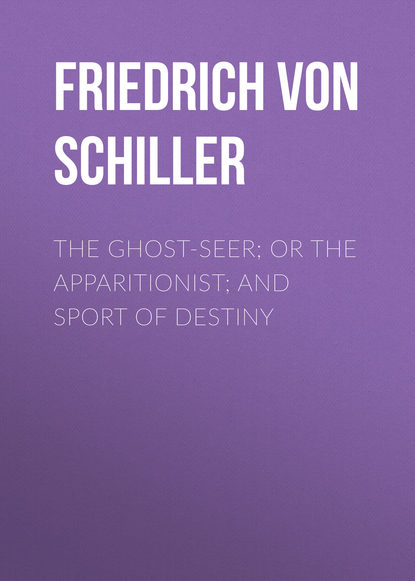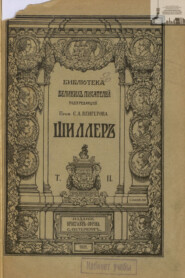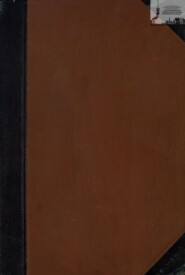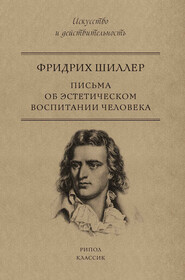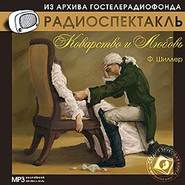По всем вопросам обращайтесь на: info@litportal.ru
(©) 2003-2024.
✖
The Ghost-Seer; or the Apparitionist; and Sport of Destiny
Настройки чтения
Размер шрифта
Высота строк
Поля
BARON F – TO COUNT O – September
The prince has fallen out with his court, and all resources have consequently been cut off from home.
The term of six weeks, at the end of which my master was to pay the marquis, has already elapsed several days; but still no remittances have been forwarded, either from his cousin, of whom he had earnestly requested an additional allowance in advance, or from his sister. You may readily suppose that Civitella has not reminded him of his debt; the prince’s memory is, however, all the more faithful. Yesterday morning at length brought an answer from the seat of government.
We had shortly before concluded a new arrangement with the master of our hotel, and the prince had publicly announced his intention to remain here sometime longer. Without uttering a word my master put the letter into my hand. His eyes sparkled, and I could read the contents in his face.
Can you believe it, dear O; all my master’s proceedings here are known at and have been most calumniously misrepresented by an abominable tissue of lies? “Information has been received,” says the letter, amongst other things, “to the effect that the prince has for some time past belied his former character, and adopted a node of conduct totally at variance with his former exemplary manner of acting and thinking.” “It is known,” the writer says, “that he has addicted himself with the greatest excess to women and play; that he is overwhelmed with debts; puts his confidence in visionaries and charlatans, who pretend to have power over spirits; maintains suspicious relations with Roman Catholic prelates, and keeps up a degree of state which exceeds both his rank and his means. Nay, it is even said, that he is about to bring this highly offensive conduct to a climax by apostacy to the Church of Rome! and in order to clear himself from this last charge he is required to return immediately. A banker at Venice, to whom he must make known the true amount of his debts, has received instructions to satisfy his creditors immediately after his departure; for, under existing circumstances, it does not appear expedient to remit the money directly into his hands.”
What accusations, and what a mode of preferring them. I read the letter again and again, in the hope of discovering some expression that admitted of a milder construction, but in vain; it was wholly incomprehensible.
Z – now reminded me of the secret inquiries which had been made some time before of Biondello. The true nature of the inquiries and circumstances all coincided. He had falsely ascribed them to the Armenian; but now the source from whence the came was very evident. Apostacy! But who can have any interest in calumniating my master so scandalously? I should fear it was some machination of the Prince of – d – , who is determined on driving him from Venice.
In the meantime the prince remained absorbed in thought, with his eyes fixed on the ground. His continued silence alarmed me. I threw myself at his feet. “For God’s sake, your highness,” I cried, “moderate your feelings – you will – nay, you shall have satisfaction. Leave the whole affair to me. Let me be your emissary. It is beneath your dignity to reply to such accusations; but you will not, I know, refuse me the privilege of doing so for you. The name of your calumniator must be given up, and – ‘s eyes must be opened.”
At this moment we were interrupted by the entrance of Civitella, who inquired with surprise into the cause of our agitation. Z – and I did not answer; but the prince, who had long ceased to make any distinction between him and us, and who, besides, was too much excited to listen to the dictates of prudence, desired me to communicate the contents of the letter to him. On my hesitating to obey him, he snatched the letter from my hand and gave it to the marquis.
“I am in your debt, marquis,” said he, as Civitella gave him back the letter, after perusing it, with evident astonishment, “but do not let that circumstance occasion you any uneasiness; grant me but a respite of twenty days, and you shall be fully satisfied.”
“Do I deserve this at your hands, gracious prince?” exclaimed Civitella, with extreme emotion.
“You have refrained from pressing me, and I gratefully appreciate your delicacy. In twenty days, as I before said, you shall be fully satisfied.”
“But how is this?” asked Civitella, with agitation and surprise. “What means all this? I cannot comprehend it.”
We explained to him all that we knew, and his indignation was unbounded. The prince, he asserted, must insist upon full satisfaction; the insult was unparalleled.
In the meanwhile he implored him to make unlimited use of his fortune and his credit.
When the marquis left us the prince still continued silent. He paced the apartment with quick and determined steps, as if some strange and unusual emotion were agitating his frame. At length he paused, muttering between his teeth, “Congratulate yourself; he died at ten o’clock.”
We looked at him in terror.
“Congratulate yourself,” he repeated. “Did he not say that I should congratulate myself? What could he have meant?”
“What has reminded you of those words?” I asked; “and what have they to do with the present business?”
“I did not then understand what the man meant, but now I do. Oh, it is intolerable to be subject to a master.”
“Gracious prince!”
“Who can make us feel our dependence. Ha! it must be sweet, indeed.”
He again paused. His looks alarmed me, for I had never before seen him thus agitated.
“Whether a man be poorest of the poor,” he continued, “or the next heir to the throne, it is all one and the same thing. There is but one difference between men – to obey or to command.”
He again glanced over the letter.
“You know the man,” he continued, “who has dared to write these words to me. Would you salute him in the street if fate had not made him your master? By Heaven, there is something great in a crown.”
He went on in this strain, giving expression to many things which I dare not trust to paper. On this occasion the prince confided a circumstance to me which alike surprised and terrified me, and which may be followed by the most alarming consequences. We have hitherto been entirely deceived regarding the family relations of the court of – .
He answered the letter on the spot, notwithstanding my earnest entreaty that he should postpone doing so; and the strain in which he wrote leaves no ground to hope for a favorable settlement of those differences.
You are no doubt impatient, dear O – , to hear something definite with respect to the Greek; but in truth I have very little to tell you. From the prince I can learn nothing, as he has been admitted into her confidence, and is, I believe, bound to secrecy. The fact has, however, transpired that she is not a Greek, as we supposed, but a German of the highest descent. From a certain report that has reached me, it would appear that her mother is of the most exalted rank, and that she is the fruit of an unfortunate amour which was once talked of all over Europe. A course of secret persecution to which she had been exposed, in consequence of her origin, compelled her to seek protection in Venice, and to adopt that concealment which had rendered it impossible for the prince to discover her retreat. The respect with which the prince speaks of her, and a certain deferential deportment which he maintains towards her, appear to corroborate the truth of this report.
He is devoted to her with a fearful intensity of passion which increases day by day. In the earliest stage of their acquaintance but few interviews were granted; but after the first week the separations were of shorter duration, and now there is scarce a day on which the prince is not with her. Whole evenings pass without our even seeing him, and when he is not with her she appears to form the sole object of his thoughts. His whole being seems metamorphosed. He goes about as if wrapped in a dream, and nothing that formerly interested him has now power to arrest his attention even for a moment.
How will this end, my dear friend? I tremble for the future. The rupture with his court has placed my master in a state of humiliating dependence on one sole person – the Marquis Civitella. This man is now master of our secrets – of our whole fate. Will he always conduct himself as nobly as he does now? Are his good intentions to be relied upon; and is it expedient to confide so much weight and power to one person – even were he the best of men? The prince’s sister has again been written to – the result of this fresh appeal you shall learn in my next letter.
COUNT O – IN CONTINUATION
This letter never reached me. Three months passed without my receiving any tidings from Venice, – an interruption to our correspondence which the sequel but too clearly explained. All my friend’s letters to me had been kept back and suppressed. My emotion may be conceived when, in the December of the same year, the following letter reached me by mere accident (as it afterwards appeared), owing to the sudden illness of Biondello, into whose hands it had been committed.
“You do not write; you do not answer me. Come, I entreat you, come on the wings of friendship! Our hopes are fled! Read the enclosed, – all our hopes are at an end!
“The wounds of the marquis are reported mortal. The cardinal vows vengeance, and his bravos are in pursuit of the prince. My master – oh! my unhappy master! Has it come to this! Wretched, horrible fate! We are compelled to hide ourselves, like malefactors, from assassins and creditors.
“I am writing to you from the convent of – , where the prince has found an asylum. At this moment he is resting on his hard couch by my side, and is sleeping – but, alas! it is only the sleep of deadly exhaustion, that will but give him new strength for new trials. During the ten days that she was ill no sleep closed his eyes. I was present when the body was opened. Traces of poison were detected. To-day she is to be buried.
“Alas! dearest O – , my heart is rent. I have lived through scenes that can never be effaced from my memory. I stood beside her deathbed. She departed like a saint, and her last strength was spent in trying with persuasive eloquence to lead her lover into the path that she was treading in her way to heaven. Our firmness was completely gone – the prince alone maintained his fortitude, and although he suffered a triple agony of death with her, he yet retained strength of mind sufficient to refuse the last prayer of the pious enthusiast.”
This letter contained the following enclosure:
TO THE PRINCE OF – , FROM HIS SISTER.
“The one sole redeeming church which has made so glorious a conquest of the Prince of – will surely not refuse to supply him with means to pursue the mode of life to which she owes this conquest. I have tears and prayers for one that has gone astray, but nothing further to bestow on one so worthless! HENRIETTE.”
I instantly threw myself into a carriage – travelled night and day, and in the third week I was in Venice. My speed availed nothing. I had come to bring comfort and help to an unhappy one, but I found a happy one who needed not my weak aid. F – was ill when I arrived, and unable to see me, but the following note was brought to me from him.
“Return, dearest O – , to whence you came. The prince no longer needs you or me. His debts have been paid; the cardinal is reconciled to him, and the marquis has recovered. Do you remember the Armenian who perplexed us so much last year? In his arms you will find the prince, who five days since attended mass for the first time.”
Notwithstanding all this I earnestly sought an interview with the prince, but was refused. By the bedside of my friend I learnt the particulars of this strange story.
THE SPORT OF DESTINY
ALOYSIUS VON G – was the son of a citizen of distinction, in the service of – , and the germs of his fertile genius had been early developed by a liberal education. While yet very young, but already well grounded in the principles of knowledge, he entered the military service of his sovereign, to whom he soon made himself known as a young man of great merit and still greater promise. G – was now in the full glow of youth, so also was the prince. G – was ardent and enterprising; the prince, of a similar disposition, loved such characters. Endued with brilliant wit and a rich fund of information, G – possessed the art of ingratiating himself with all around him; he enlivened every circle in which he moved by his felicitous humor, and infused life and spirit into every subject that came before him. The prince had discernment enough to appreciate in another those virtues which he himself possessed in an eminent degree. Everything which G – undertook, even to his very sports, had an air of grandeur; no difficulties could daunt him, no failures vanquish his perseverance. The value of these qualities was increased by an attractive person, the perfect image of blooming health and herculean strength, and heightened by the eloquent expression natural to an active mind; to these was added a certain native and unaffected dignity, chastened and subdued by a noble modesty. If the prince was charmed with the intellectual attractions of his young companion, his fascinating exterior irresistibly captivated his senses. Similarity of age, of tastes, and of character soon produced an intimacy between them, which possessed all the strength of friendship and all the warmth and fervor of the most passionate love. G – rose with rapidity from one promotion to another; but whatever the extent of favors conferred they still seemed in the estimation of the prince to fall short of his deserts. His fortune advanced with gigantic strides, for the author of his greatness was his devoted admirer and his warmest friend. Not yet twenty-two years of age, he already saw himself placed on an eminence hitherto attained only by the most fortunate at the close of their career. But his active spirit was incapable of reposing long in the lap of indolent vanity, or of contenting itself with the glittering pomp of an elevated office, to perform the behests of which he was conscious of possessing both the requisite courage and the abilities. Whilst the prince was engaged in rounds of pleasure, his young favorite buried himself among archives and books, and devoted himself with laborious assiduity to affairs of state, in which he at length became so expert that every matter of importance passed through his hands. From the companion of his pleasures he soon became first councillor and minister, and finally the ruler of his sovereign. In a short time there was no road to the prince’s favor but through him. He disposed of all offices and dignities; all rewards were received from his hands.
G – had attained this vast influence at too early an age, and had risen by too rapid strides to enjoy his power with moderation. The eminence on which he beheld himself made his ambition dizzy, and no sooner was the final object of his wishes attained than his modesty forsook him. The respectful deference shown him by the first nobles of the land, by all who, in birth, fortune, and reputation, so far surpassed him, and which was even paid to him, youth as he was, by the oldest senators, intoxicated his pride, while his unlimited power served to develop a certain harshness which had been latent in his character, and which, throughout all the vicissitudes of his fortune, remained. There was no service, however considerable or toilsome, which his friends might not safely ask at his hands; but his enemies might well tremble! for, in proportion as he was extravagant in rewards, so was he implacable in revenge. He made less use of his influence to enrich himself than to render happy a number of beings who should pay homage to him as the author of their prosperity; but caprice alone, and not justice, dictated the choice of his subjects. By a haughty, imperious demeanor he alienated the hearts even of those whom he had most benefited; while at the same time he converted his rivals and secret enviers into deadly enemies.
Amongst those who watched all his movements with jealousy and envy, and who were silently preparing instruments for his destruction, was Joseph Martinengo, a Piedmontese count belonging to the prince’s suite, whom G – himself had formerly promoted, as an inoffensive creature, devoted to his interests, for the purpose of supplying his own place in attending upon the pleasures of the prince – an office which he began to find irksome, and which he willingly exchanged for more useful employment. Viewing this man merely as the work of his own hands, whom he might at any period consign to his former insignificance, he felt assured of the fidelity of his creature from motives of fear no less than of gratitude. He fell thus into the error committed by Richelieu, when he made over to Louis XII., as a sort of plaything, the young Le Grand. Without Richelieu’s sagacity, however, to repair his error, he had to deal with a far more wily enemy than fell to the lot of the French minister. Instead of boasting of his good fortune, or allowing his benefactor to feel that he could now dispense with his patronage, Martinengo was, on the contrary, the more cautious to maintain a show of dependence, and with studied humility affected to attach himself more and more closely to the author of his prosperity. Meanwhile, he did not omit to avail himself, to its fullest extent, of the opportunities afforded him by his office, of being continually about the prince’s person, to make himself daily more useful, and eventually indispensable to him. In a short time he had fathomed the prince’s sentiments thoroughly, had discovered all the avenues to his confidence, and imperceptibly stolen himself into his favor. All those arts which a noble pride, and a natural elevation of character, had taught the minister to disdain, were brought into play by the Italian, who scrupled not to avail himself of the most despicable means for attaining his object. Well aware that man never stands so much in need of a guide and assistant as in the paths of vice, and that nothing gives a stronger title to bold familiarity than a participation in secret indiscretions, he took measures for exciting passions in the prince which had hitherto lain dormant, and then obtruded himself upon him as a confidant and an accomplice. He plunged him especially into those excesses which least of all endure witnesses, and imperceptibly accustomed the prince to make him the depository of secrets to which no third person was admitted. Upon the degradation of the prince’s character he now began to found his infamous schemes of aggrandizement, and, as he had made secrecy a means of success, he had obtained entire possession of his master’s heart before G – even allowed himself to suspect that he shared it with another.
It may appear singular that so important a change should escape the minister’s notice; but G – was too well assured of his own worth ever to think of a man like Martinengo in the light of a competitor; while the latter was far too wily, and too much on his guard, to commit the least error which might tend to rouse his enemy from his fatal security. That which has caused thousands of his predecessors to stumble on the slippery path of royal favor was also the cause of G – ‘s fall, immoderate self-confidence. The secret intimacy between his creature, Martinengo, and his royal master gave him no uneasiness; he readily resigned a privilege which he despised and which had never been the object of his ambition. It was only because it smoothed his way to power that he had ever valued the prince’s friendship, and he inconsiderately threw down the ladder by which he had risen as soon as he had attained the wished-for eminence.
Martinengo was not the man to rest satisfied with so subordinate a part. At each step which he advanced in the prince’s favor his hopes rose higher, and his ambition began to grasp at a more substantial gratification. The deceitful humility which he had hitherto found it necessary to maintain towards his benefactor became daily more irksome to him, in proportion as the growth of his reputation awakened his pride. On the other hand, the minister’s deportment toward him by no means improved with his marked progress in the prince’s favor, but was often too visibly directed to rebuke his growing pride by reminding him of his humble origin. This forced and unnatural position having become quite insupportable, he at length formed the determination of putting an end to it by the destruction of his rival. Under an impenetrable veil of dissimulation he brought his plan to maturity. He dared not venture as yet to come into open conflict with his rival; for, although the first glow of the minister’s favor was at an end, it had commenced too early, and struck root too deeply in the bosom of the prince, to be torn from it abruptly. The slightest circumstance might restore it to all its former vigor; and therefore Martinengo well understood that the blow which he was about to strike must be a mortal one. Whatever ground G – might have lost in the prince’s affections he had gained in his respect. The more the prince withdrew himself from the affairs of state, the less could he dispense with the services of a man, who with the most conscientious devotion and fidelity had consulted his master’s interests, even at the expense of the country, – and G – was now as indispensable to him as a minister as he had formerly been dear to him as a friend.
By what means the Italian accomplished his purpose has remained a secret between those on whom the blow fell and those who directed it. It was reported that he laid before the prince the original draughts of a secret and very suspicious correspondence which G – is said to have carried on with a neighboring court; but opinions differ as to whether the letters were authentic or spurious. Whatever degree of truth there may have been in the accusation it is but too certain that it fearfully accomplished the end in view. In the eyes of the prince G – appeared the most ungrateful and vilest of traitors, whose treasonable practices were so thoroughly proved as to warrant the severest measures without further investigation. The whole affair was arranged with the most profound secrecy between Martinengo and his master, so that G – had not the most distant presentiment of the impending storm. He continued wrapped in this fatal security until the dreadful moment in which he was destined, from being the object of universal homage and envy, to become that of the deepest commiseration.





